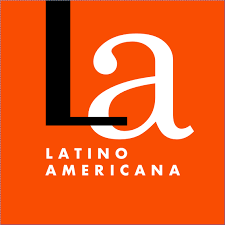Perception of teachers from the city of Puebla, Mexico, towards teacher evaluation
DOI:
https://doi.org/10.46588/invurnus.v15i3.29Keywords:
Evaluation, Evaluation of education, Teacher evaluation, PerceptionAbstract
Teacher evaluation is key to continuous improvement of the teaching-learning process at all educational levels; to be effective, it is necessary to have the disposition of those evaluated, so it was considered convenient to investigate what is the perception of teachers when evaluating their professional work. A non-experimental, descriptive and simple cross-sectional research was designed, the objective of which was to analyze the social representation which teachers have of the evaluation they are subject to. The concepts of educational evaluation and teacher evaluation were reviewed and later a questionnaire was constructed that was applied to 68 teachers. The results obtained show a negative perception in teachers who have 6 to 25 years of experience, but positive in those with 5 years or less. The vision of evaluation as a means of control and sanction predominates, although more than 25% see it in a more optimistic way. It was found that women, in a ratio of 3 to 1 with respect to men, state that they agree with the results obtained in their evaluation.
Downloads
References
Alcaráz, N. 2014. Un viejo trío de conceptos: Aprendizaje, currículum y evaluación. Revista Aula de Encuentro. Vol. 16 No.: pp.67-68
Alkin, M. 2012. Evaluation roots. A Wider Perspective of Theorists′ Views and Influences, Second Edition. Edit. SAGE. País USA
Camilloni, A. 2009. Estándares, evaluación y currículo. Archivos de Ciencias de la Educación (4ª época). Año 3, no. 3, pp. 55-68. País. Argentina
Coll, C. 2004. Psicología y currículum: una aproximación psicopedagógica a la elaboración del currículum escolar. Paidos Ibérica. Madrid.
Conde, C. 2017. Avances y retrocesos de la evaluación en México. La perspectiva de los evaluadores. Revista Política y cultura. 47: 9-40.
Consejo Nacional de Evaluación de la Política de Desarrollo Social. 2014. La política de evaluación en México: 10 años del Coneval. Coneval. México.
Cronbach, L 1963. Coefficient alpha and the internal structure of tests. Psychometrika, 16-3: 297-334.
Danielson, C. 2017. New Trends in Teacher Evaluation. Educational Leadership. 58-8:12-15
Díaz-Barriga, A. 1998. .Evaluación Académica: Organismos Internacionales y Política Educativa. UNAM. México.
Díaz-Barriga, A. 2004. La evaluación de la docencia. Su generación, su adjetivación y sus retos. Capítulo II en Rueda, M. (coord.). ¿Es posible evaluar la docencia en la universidad? Experiencias en México, Canadá, Francia, España y Brasil., ANUIES, pp 63-76, México.
Díaz-Barriga, F., Hernández G. 2018. Estrategias docentes para un aprendizaje significativo. McGraw Hill. México.
Duque, R. 1993. La evaluación en la ES Venezolana. Planiuc. X-17-18.
Gallardo, K., Ramos, A., Camacho, D., Gil, M. 2015. Evaluación de los estudiantes: las prácticas institucionales y docentes vistas desde el marco de estándares internacionales. Apertura, Vol. 7, Núm. 2
Garduño. M 2019. El modelo Tyleriano de curriculum y el papel de los objetivos conductuales. ¿Tyler fue realmente conductista? Revista Historia de la Educación. Vol. 22 N° 22, enero –junio.
Gimeno Sacristán, J. (2008). Comprender y transformar la enseñanza. Morata. Madrid.
González, L. y Ayarza, H., 2016. Calidad, evaluación institucional y acreditación en la educación superior en la región Latinoamericana y del Caribe. Documento central. La educación superior en el siglo XXI. Visión de América Latina y el Caribe. Conferencia Regional Políticas y Estrategias para la Transformación de la Educación Superior en América Latina y el Caribe, La Habana, Cuba, 1996. Caracas: CRESALC-UNESCO.
Gullickson, A. 2013 The student Evaluation Standards. Join Committee on Standards for Educational Evaluation. Thousand Oaks, CA: Corwin Pres. ETS Educational Policy Leadership Institute
Guzmán-Marín, F. 2018. La Experiencia de la Evaluación Docente en México: Análisis Crítico de la Imposición del Servicio Profesional Docente. Revista Iberoamericana de Evaluación Educativa, 2018, 11(1), 135-158.
INEE. 2018. Encuestas de Opinión Docente. Ingreso y Promoción. Ciudad de México. Abril de 2019. https://cutt.ly/arTKJm9.
Isoré, M. 2010. Evaluación docente: prácticas vigentes en los países de la OCDE y una revisión de la literatura. París: PREAL: Documentos Nº 46.
Mateo, J. 2006. La evaluación educativa, su práctica y otras metáforas. Alfaomega. Barcelona.
Ogawa, R. y Collom, E. 2008. Educational indicators: What are they? How can schools and schools districts use them? California Educational Research Cooperative. Riverside
Scriven 2004. Evaluation as a discipline. Studies in Educational Evaluation. 20, 147-166
Schutz, A., Thomas, L. 2001. Las estructuras del mundo de la vida. Amorrortu. Buenos Aires.
Stufflebeam. 2003. Métodos cuantitativos y cualitativos de la investigación evaluativa. Morata. Madrid.
Stufflebeam, D., Shinkfield, A. 2000. Evaluación sistemática - Guía teórica y práctica. Paidós. España.
Zabalza, M. & Zabalza, M. 2012. Profesores y profesión docente. Entre el “ser” y el “estar”. Narcea. Madrid.
Zorrilla, M. 2017. Consejo Social Consultivo de Evaluación de la Educación. 2ª. Sesión Ordinaria Servicio Profesional Docente. Ciudad de México. https://cutt.ly/orTKTGN.












